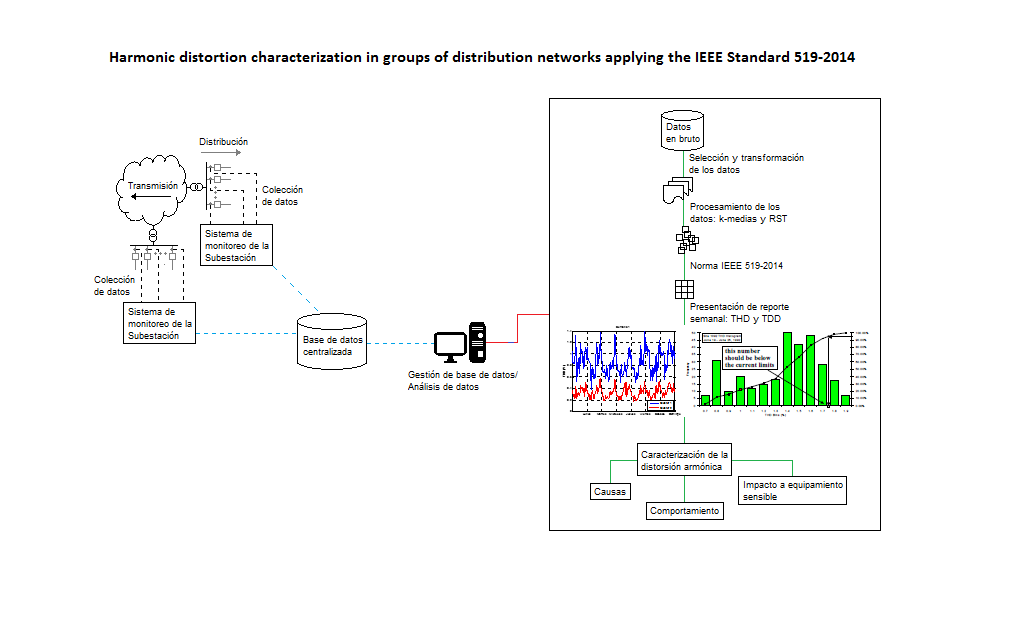Harmonic distortion characterization in groups of distribution networks applying the IEEE Standard 519-2014
Keywords:
Clustering methods, Data Clustering, Distribution Networks, harmonic distortion, IEEE 519-2014, rough sets theoryAbstract
Recently, it has been produced an accelerated presence of non-linear elements in the residential, commercial and industrial sectors, which has affected the voltage waveform, altering its amplitude and frequency. These sectors obtain the electric energy from distribution networks, so it is essential to check them systematically in order to ensure the power quality according to operational guidelines and national standards. Power quality involves a wide variety of electromagnetic phenomena on the power system, highlighting the harmonics. This paper presents an application based on the k-means clustering to identify similarities in the behavior of the harmonic distortion of voltage and current in distribution networks and its validation and refinement using the rough sets theory. The main result lies in the characterization of those groups of distribution networks by means of their centroids and according to the IEEE Standard 519-2014. To verify the methodology, field measurements of a group of distribution networks in Cuba are analyzed.
Downloads


